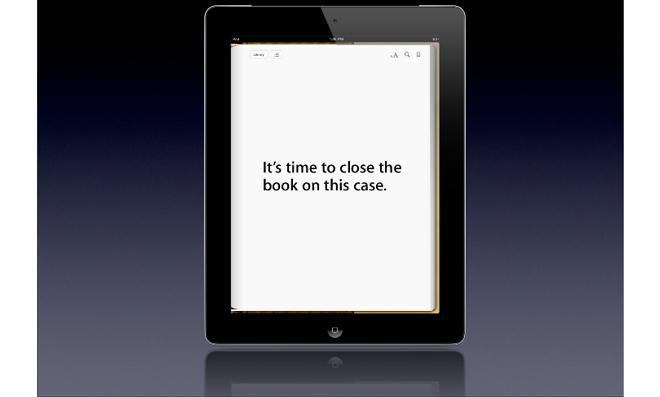Apple, Amazon, Barnes & Noble, and Kobo have begun the process of handing out $166 million in account credits to consumers affected by the e-books price fixing scandal as notification emails began going out on Tuesday.
E-book buyers can expect to receive a credit of $3.17 for each electronic version of a book on the New York Times bestseller list purchased between April 1, 2010 and May 21, 2012, while books not found on the bestseller list draw a credit of $0.73 each. Consumers who purchased e-books from Sony and some other retailers will receive a partial refund check rather than a credit.
The payments are the result of a settlement between the Department of Justice and publishers Hachette, HarperCollins, Simon & Schuster, Penguin and Macmillan. Those publishers reached a settlement agreement with the government after being accused, along with Apple, of conspiring to raise e-book prices by agreeing to a new agency pricing model.
Unlike the traditional wholesale model, in which content is purchased in bulk and resold at a price decided entirely by the retailer, the agency model allows publishers to effectively set minimum retail prices throughout the market. The defendants argued that while prices did increase slightly under the agency model, it also had the effect of leveling the playing field by eliminating Amazon's market hegemony.
Apple was not party to the settlement and was eventually found guilty of price fixing, though the company continues to vigorously defend itself. Apple is now in the midst of an appeal seeking to either overturn that verdict or secure a new trial before a new judge.
 AppleInsider Staff
AppleInsider Staff








 Brian Patterson
Brian Patterson
 Charles Martin
Charles Martin


 Malcolm Owen
Malcolm Owen
 William Gallagher
William Gallagher
 Christine McKee
Christine McKee
 Marko Zivkovic
Marko Zivkovic









41 Comments
I can't believe that Apple is being singled out for this. Why do they want Amazon to have a monopoly? That will raise prices. And besides, Apple didn't do anything wrong because it was the publishers who get to set the price not Apple. The government should not be doing this when we have so many other problems that they should be taking care of instead of giving Amazon a monopoly to set unfair prices. I think that agency pricing is better because that way the people who bring us the contnet get to set the price. They know best what it is worth, and how much they have to pay the writers. Agency pricing is a lot better for the writers who actually do the work. All this is going to do is to give a monopoly to Amazon.
[quote name="SudoNym" url="/t/172120/retailers-begin-distributing-credits-from-e-book-price-fixing-settlements#post_2500241"]I can't believe that Apple is being singled out for this. Why do they want Amazon to have a monopoly? That will raise prices. And besides, Apple didn't do anything wrong because it was the publishers who get to set the price not Apple. The government should not be doing this when we have so many other problems that they should be taking care of instead of giving Amazon a monopoly to set unfair prices. [/quote] Imagine if Google got together with app developers and got them to agree to raise prices on all platforms, so everyone would make more money. Would you agree with this practice?
[quote name="Drealoth" url="/t/172120/retailers-begin-distributing-credits-from-e-book-price-fixing-settlements#post_2500248"] Imagine if Google got together with app developers and got them to agree to raise prices on all platforms, so everyone would make more money. Would you agree with this practice?[/quote] As shown by the trial Apple in no way colluded with the publishers in secret meetings to raise prices.
Google is evil (actually, any company but Apple is evil).
Apple never did anything wrong.
All hail our savior, the Jesus of the 21st century, the almighty Steve Jobs.
Gosh price fixing is so terrible - its a good thing the government does get involved in setting minimum prices for alcohol. What's that, they do? or well at least they leave tobacco alone. What, not that either? Well at least the government doesn't try to tell us what we should pay for healthcare. What, they are messing with that as well?
Maybe the real problem here is not that someone decided what they should be allowed to charge for their own product but that the government previously had no say in it, guess we solved that problem.